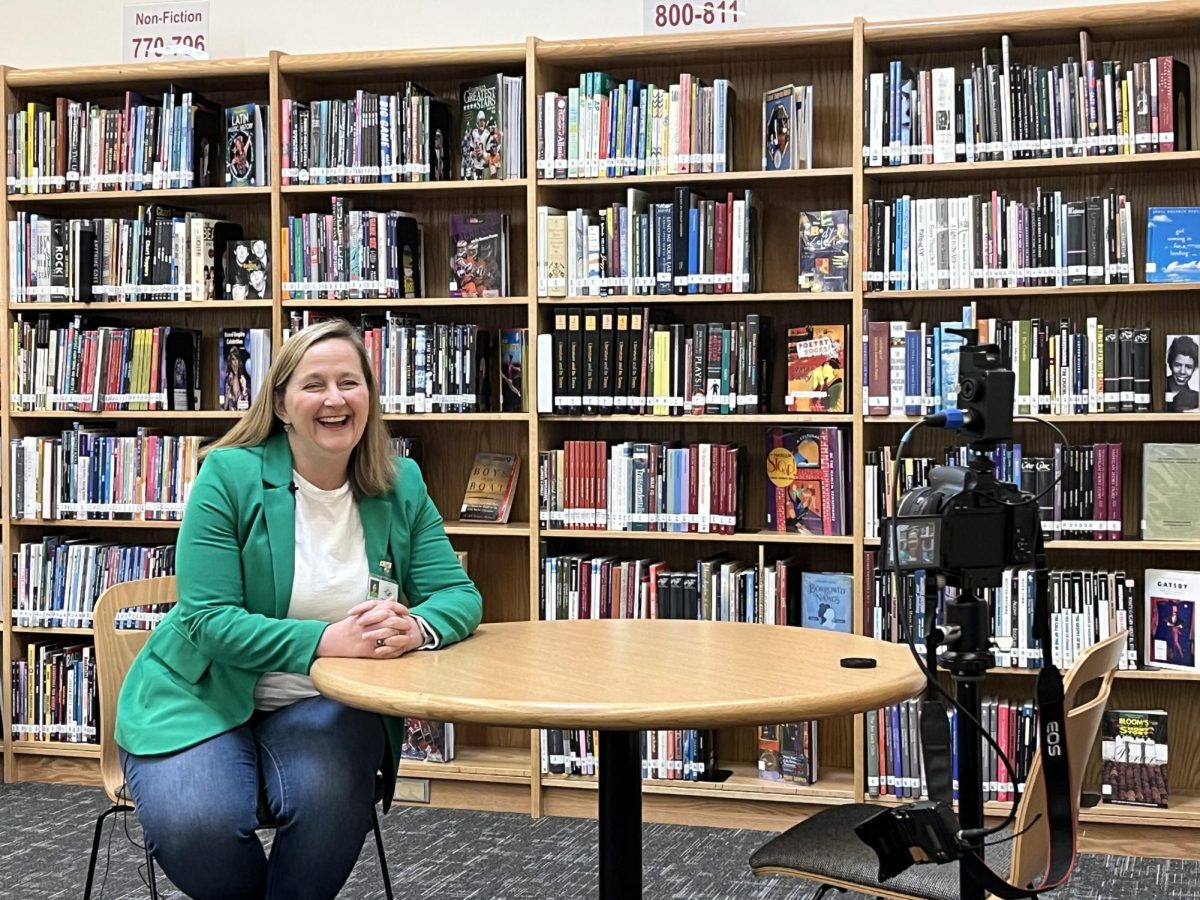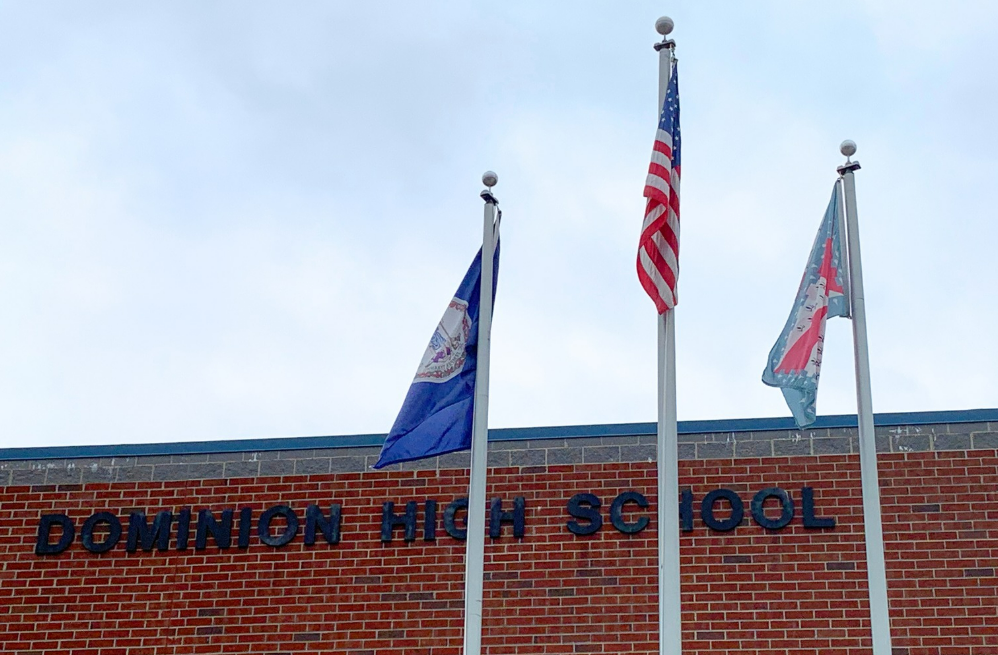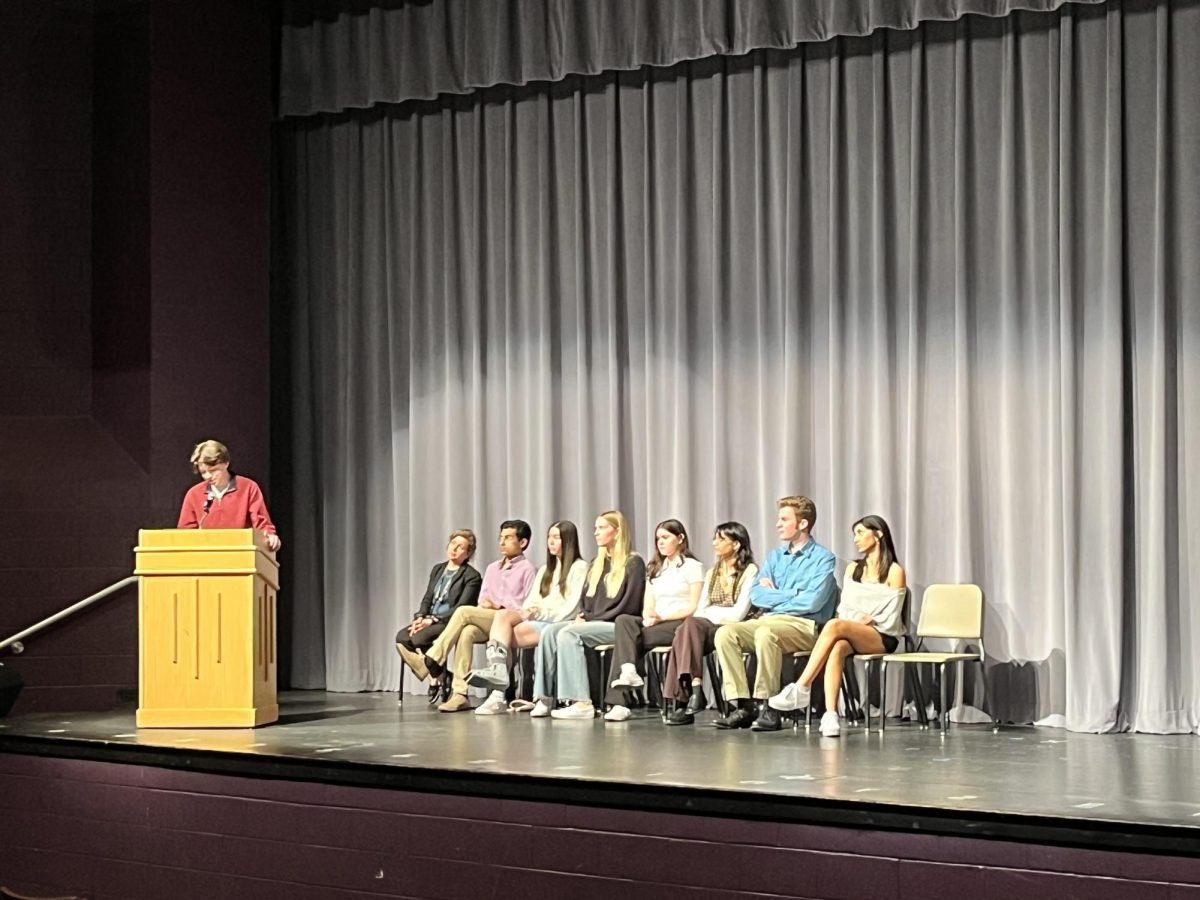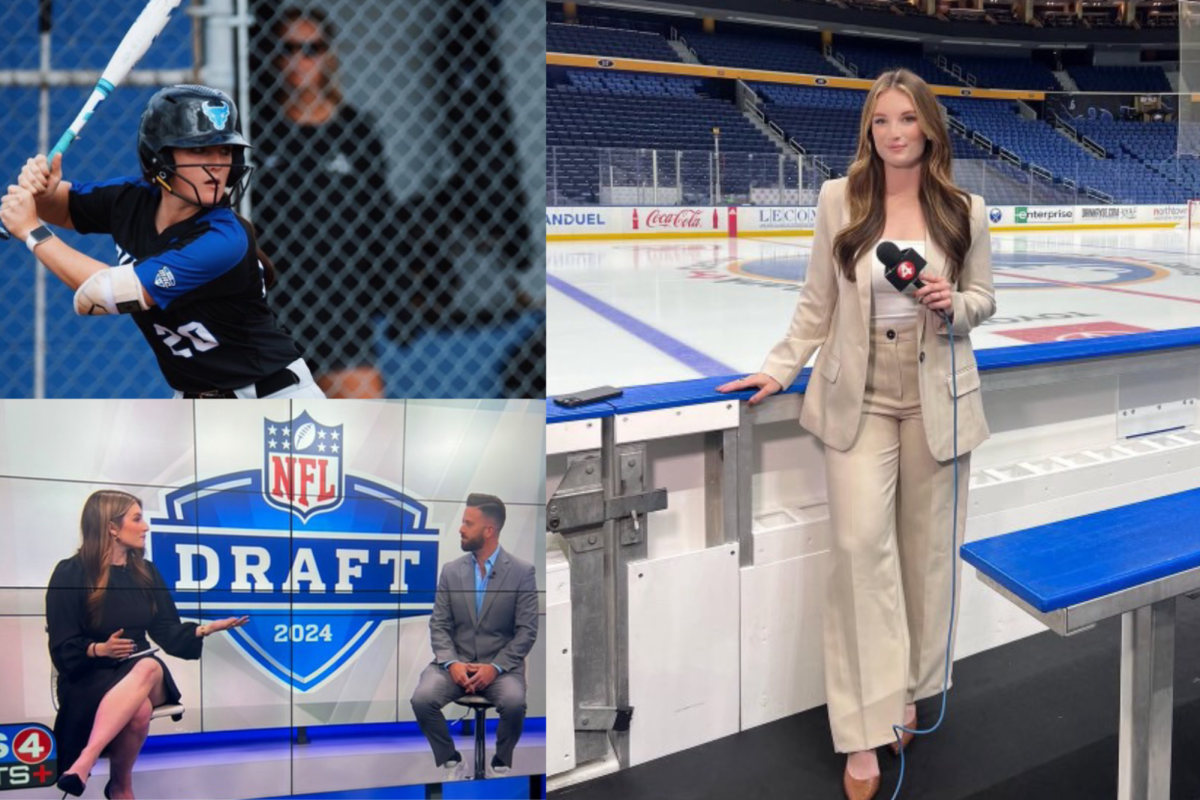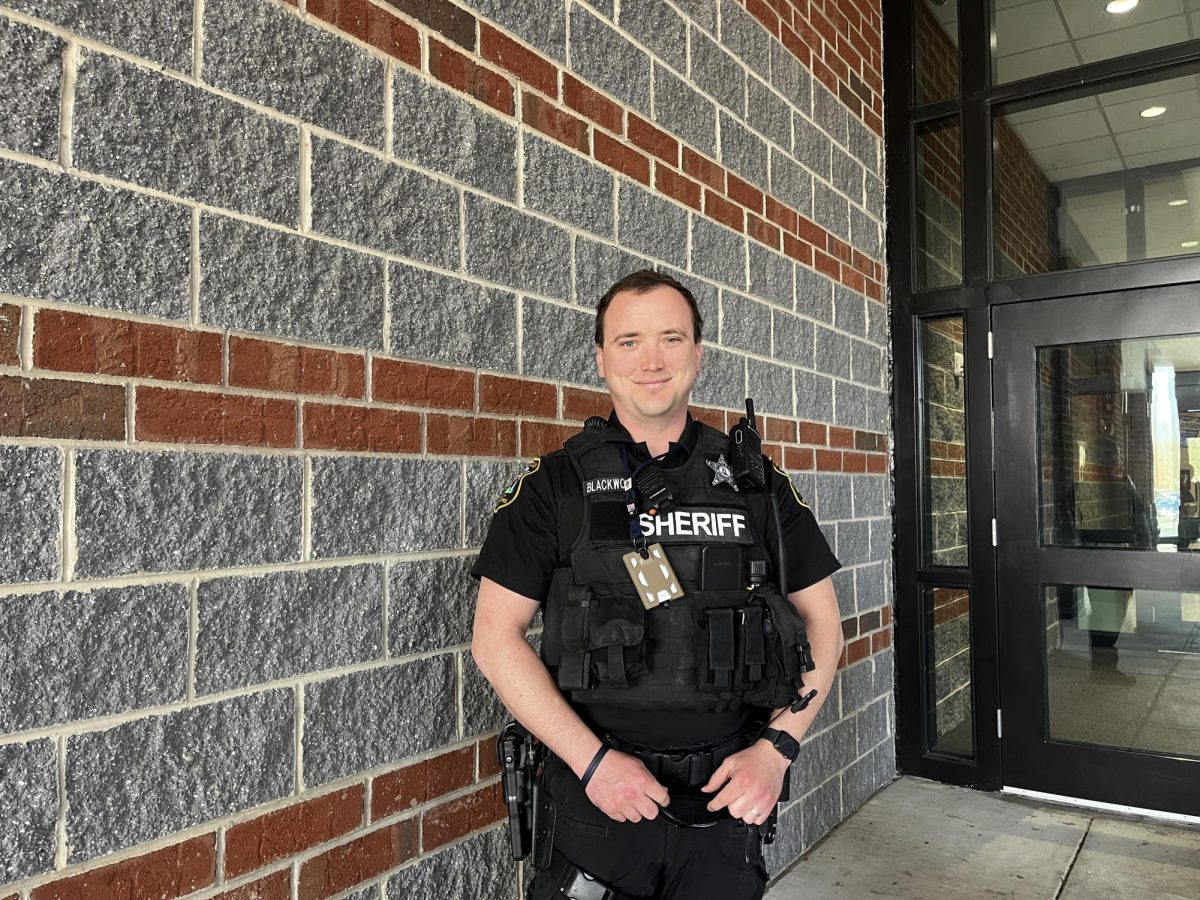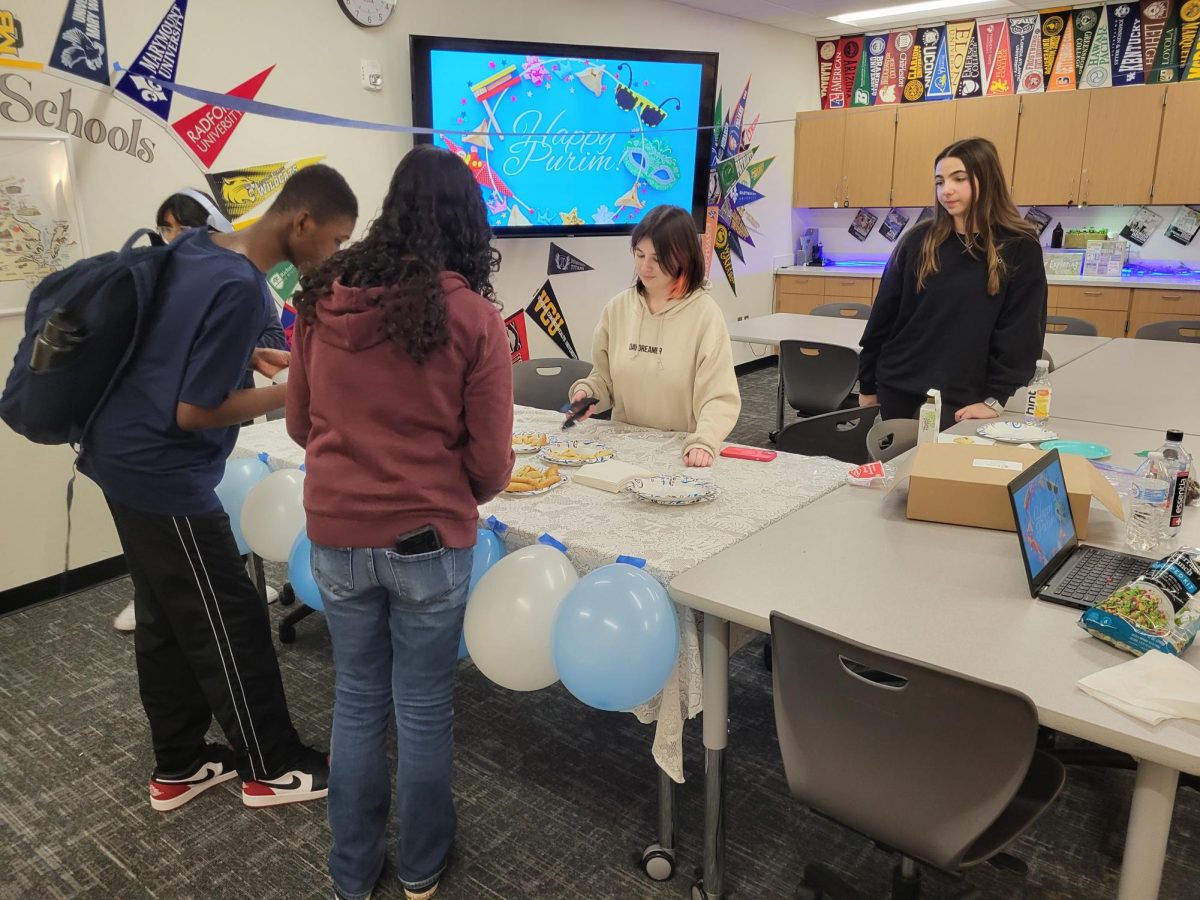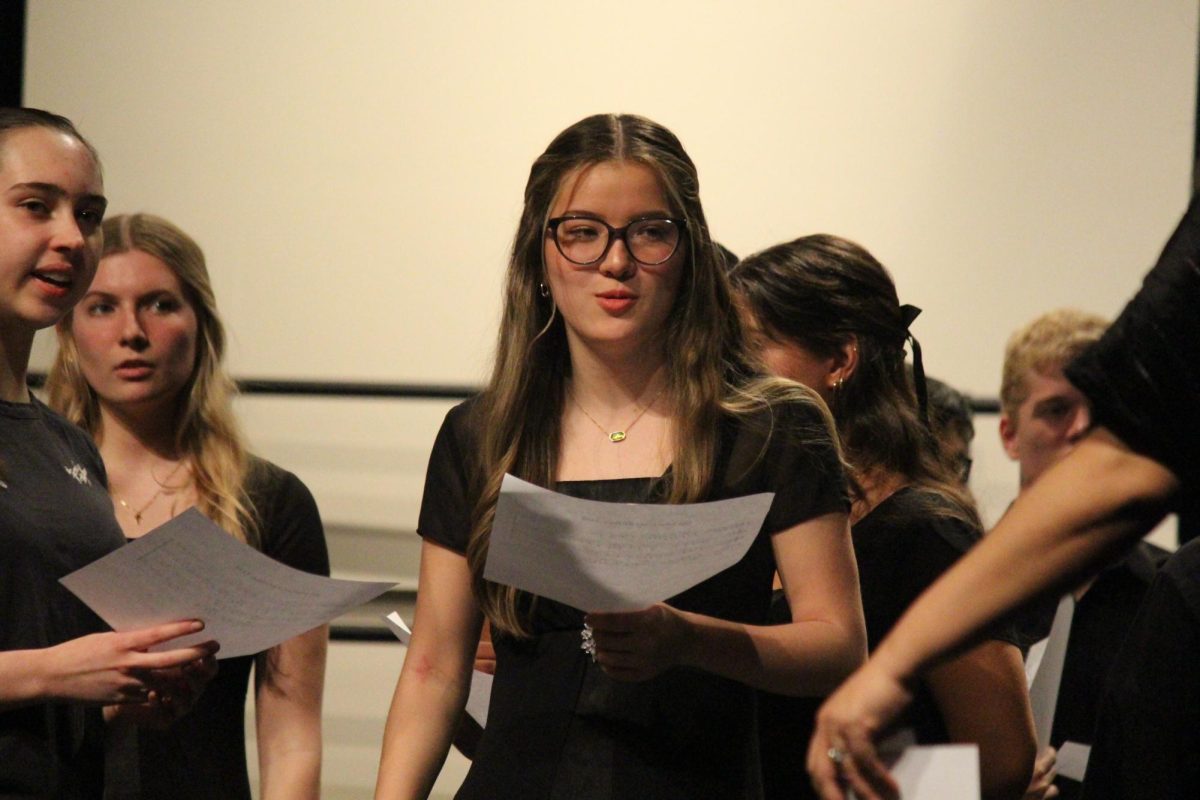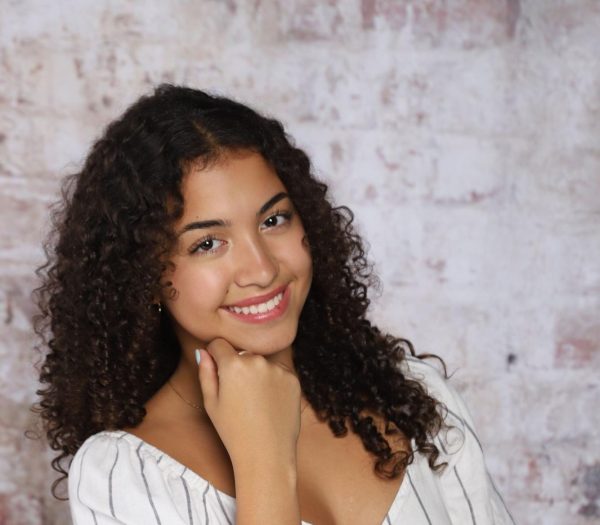Congratulations on being named Algonkian District School Board Representative, what motivated you to run for this position?
In large part because I am a mom. I have two students that are LCPS students that go to Potomac Falls. A lot of things have been happening here in Loudoun County and I didn’t want to lose sight of students. It seems crazy to say that when you’re having a conversation about schools, of course, the center of the schools is the needs of the students, but some of the conversations that have been happening over the last four years, have been meant to undermine the idea of public education and have really taken the focus off of students and student achievement. We’ve seen some of the people in administration and some of the people on the school board focusing more on the adults’ needs and I want to be here to make sure that somebody’s focused on student needs.
In your bio on the LCPS website, it tells us that you grew up in coastal South Carolina, how do you think that has impacted your perspective and views since moving here?
My family is originally from Georgia and Kentucky, I was raised by missionaries. I’m from a town where, it’s not that they’re not diverse, It’s just that they don’t realize that they’re diverse. When I was in third grade, we moved to South Carolina, and that move was significantly different for me because it wasn’t a homogenous place, like my hometown. I went to a school where lots of students who were from the military also went to school, so that meant that for the first time in my life, I wasn’t only around people who had a white Christian perspective. There was a lot of diversity and having that experience as a young person really made me realize how big and rich the world is. There are great things about South Carolina, it’s beautiful, people are super friendly there, but there is not a lot of diversity in thought. I did want to work in politics. So I came to Washington, and in that experience, it was also about making a choice for the kind of place I wanted to live my life and the experience that I wanted to have, which was to be around people from all over the world. My husband Paul and I might have stayed in Arlington if we could have afforded to, but like lots of parents of people your age, we decided to come out here. We were looking for really good schools and we wanted our kids to grow up around people who didn’t think and look and have all the same beliefs as us and it’s been the best part of living here. Really, truly, our kids have been comfortable around all different types of people their whole life. They’ve had lots of amazing enriching experiences, and it’s just a gift to be able to live life this way.
What are your top 3 priorities early on as a school board member, specifically for high schools?
For high schools, one of the things that I’m interested in is somehow finding a balance between making sure that the community and each high school gets the services that they need, that are very specific to their community, but also, at the same time trying to ensure some equity and opportunity so that, you know, the same types of opportunities are available, regardless of what community you’re in. It’s finding a hard balance, because you want to meet the needs of the community that you’re serving and you want to make sure that there’s consistency in services across the board. When it comes to our district, specifically, and this is a really tough one, I’m not sure exactly how I’m going to do it, but it’s something that’s at the top of my mind, parents in our community notice that the facilities are different here than they are when they go to play sports or to go to debate functions all across the division. The difference is noticeable, and so as we come away from this time period, I do think we’re shifting, and we’re not going to experience the rapid growth that we have over the last 20 years and it’ll downshift and we won’t have to build three new schools every year, and we’ll be able to focus on making sure that we’re updating our schools. I also want to be a voice for Algonkian District, and that’s really unique. All of the nine members of the school board have an opportunity to be a voice for their neighborhood, but I think I’ve grown to really know and love Algonkian district and understand the unique needs of our community. I want to make sure that I can do that on the board.
LCPS has been in the spotlight of some highly controversial topics in the past few years, did that have any impact on your decision to serve on the school board and if so, why/how?
It was a motivator. I don’t necessarily think that a lot of the things that have happened over the last four years have been organic or local, right? There have been a lot of factors and influences from outside of Loudoun County. Like I said, we chose this area, because we wanted our kids to have this educational experience, and it felt to me like it was important to step up and protect it. So then it was one of those things where, I really wanted to, to make sure that this space continued to be a place that was welcoming for people from all over the world.
What would you consider to be the largest (or some of the largest) issues that LCPS is facing and how do you hope to address them during your time in office?
Consistency is a big issue. You have to serve the community that you have, and be able to differentiate your services, and also make sure that all the opportunities are equitable across the board. I don’t think that Loudoun as a whole has shifted their perspective 100% [from the prior, more rural perspective], and that’s one of the things that I would like to work on is making sure that we see ourselves as we are, and use that lens to sort of build the best public school education we can for the kids that we serve in this community.
What is your position on cell phones in schools?
This is going to be a big issue, I’m sure, for the school board, and I’m excited to participate in this debate. I’ll tell you, I’m not 100% sure where I stand on it. I’m of two minds. First and foremost, I am a parent. My kids are in school, I have been working with Moms Demand Action since it started right after [the shooting at] Sandy Hook. So, safety in schools and being able to communicate with my children feels very important to me, like when they had the bomb threat and Potomac Falls two years ago. As a parent, I got so much peace from being able to communicate in real time and know that my kids were safe and to know what was happening, but we also know that there are lots of things about these devices that are interfering with typical human development. Do we know for sure that it’s not impacting our attention spans? We don’t. There’s a safety element that it feels helpful now, and if it’s impacting your ability to learn in class, then we have a responsibility to have a conversation about it. I think we’re constantly looking for better safety measures to make sure that we’re able to limit some of those distractions. We have an obligation to make sure that we’re making this space as efficient as it can possibly be. Now that we’re outside of [the COVID-19] crisis, we should probably take some time to look at whether or not [1-to-1 devices] are adding to your educational experience or if it’s taking away from it. I think it probably would be better to have a county-wide policy in terms of making a decision that’s consistent for what’s best for our community and for our students.
How do you think your time working in politics, the legal field, and as a preschool teacher has prepared you for serving as a representative on the school board?
Truly, it has. I have had the lucky opportunity to meet a lot of really neat people, and I did it at a young age. I worked in a bipartisan government relations firm, so in that year 2000, I supported people that were on both sides of the aisle. I really like politics. I think it’s interesting and have always chosen to participate in a different way than a lot of adults do, or a lot of people do. I’ve had the opportunity to meet every president who served in my lifetime, except for Ronald Reagan. Having that opportunity is exciting, yet, when I had my children, I wanted to take a step back and have the time to spend with them. I had more responsibility for myself as a young person and spent a lot of time alone, both of my parents were working. That was how a lot of people in our generation were raised, so I wanted something different for my children. The work that I did with children and seeing how children grow and develop and learn and the immediate feedback that you get when somebody understands something, I’ve never done anything that’s felt more important to me in my life. So, to have the opportunity to sort of take the things that I’ve learned in working with people and especially in a bipartisan environment where people are having hard conversations, but trying compromising and trying to come to terms with finding some middle space in the road instead of being at such far extremes, and being able to focus on the needs of students, it’s just the most exciting thing for me.
At the Jan 31st board meeting, there was mention of a “recovery school” coming to Loudoun, why is this needed and can you simply explain what it is?
The “Recovery School” is meant to be a way to ease the transition back to school for students who are experiencing substance abuse challenges, bringing them back into a supportive environment while they are in the early days of recovery. A recovery school offers academic, emotional, and social support for students while allowing them to continue to work on their learning and progress toward graduation. It is a choice that students would make with their families, and it’s offered because sometimes returning to traditional school can be challenging for students struggling with addiction.
As the board reviews policy 8040 (the transgender student policy), what changes should students anticipate will be made, and what adjustments or input do you currently have for it?
At this time, I am not able to comment because the audio recording from the meeting last night hasn’t been posted yet. I’ll touch base when I have a better understanding of what transpired.
What are a few key things you think students should know about you as a representative?
I’m always happy to hear what you have to say. I want to remember every day that we’re all here in service of you, and your ideas are important and matter. You and your parents are welcome to reach out to me and share your thoughts and your ideas and your perspectives anytime.



